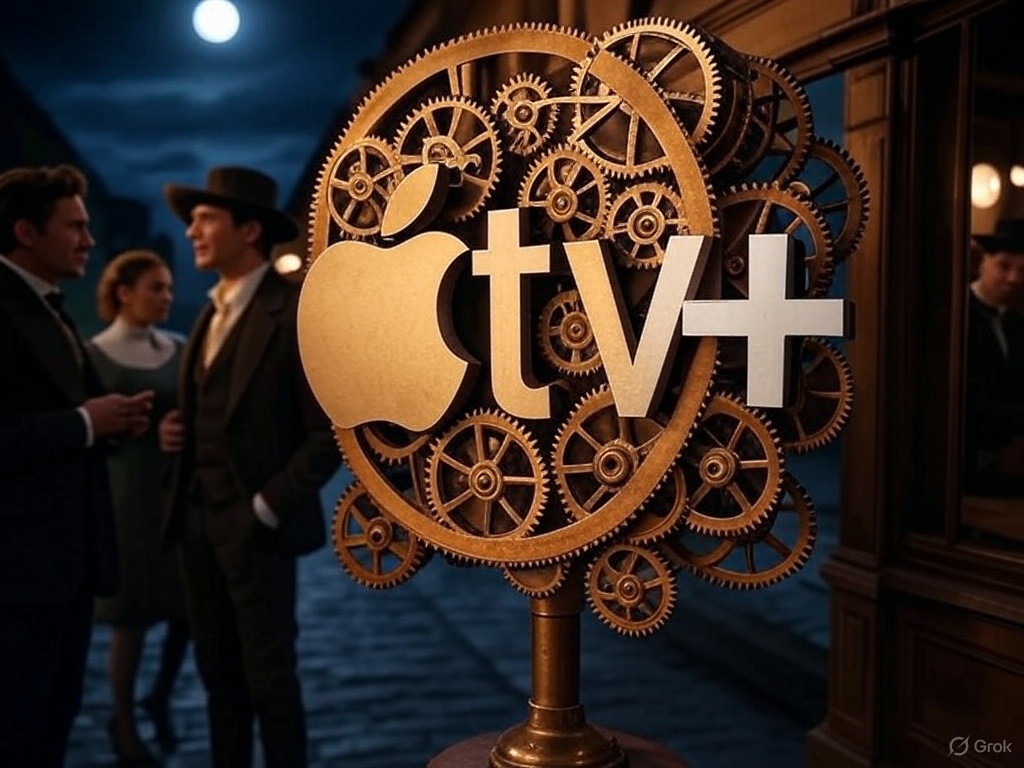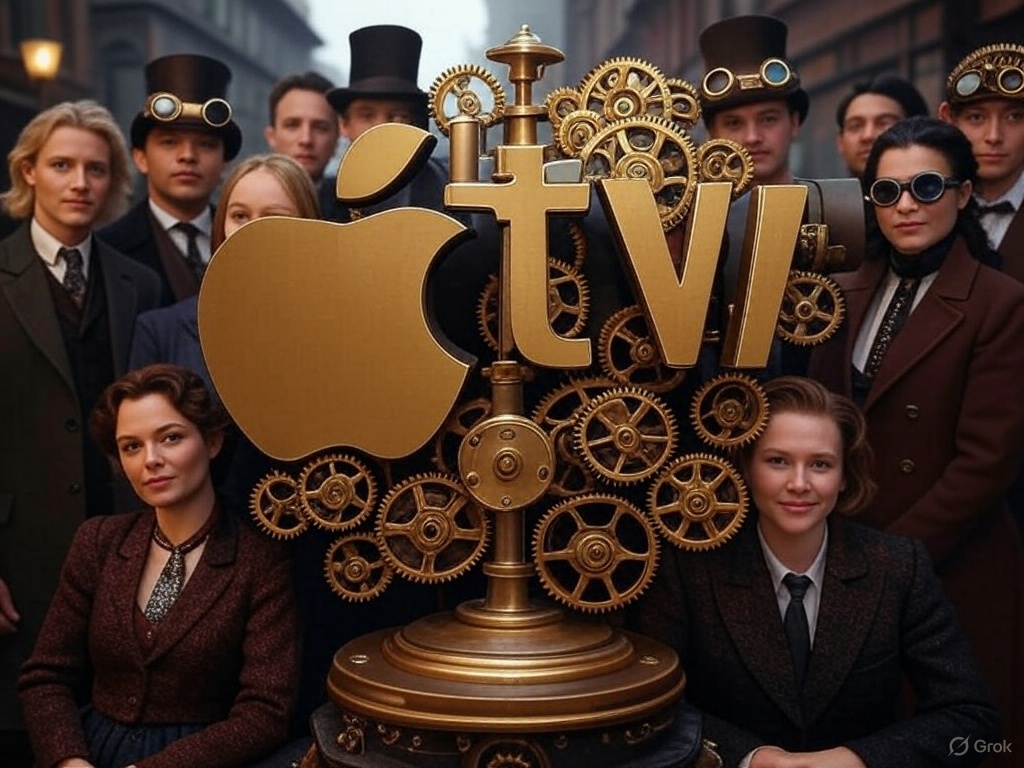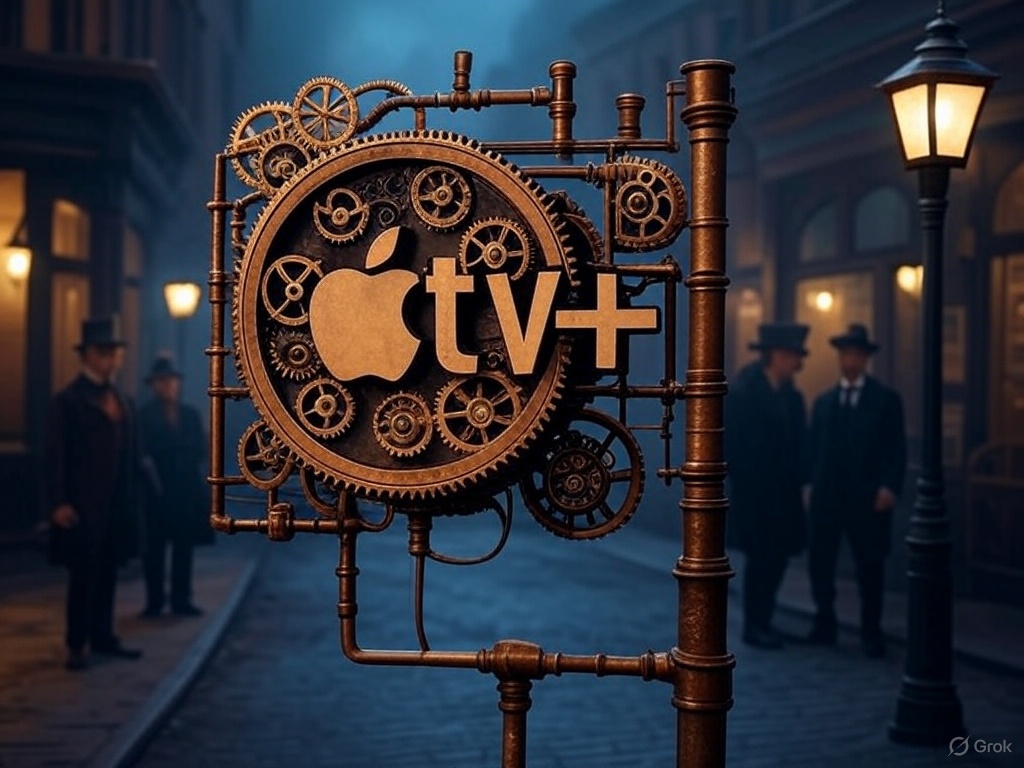Apple is reportedly hemorrhaging $1 billion a year on its streaming service, Apple TV+, according to a March 2025 report by The Information, a respected industry publication.
 The tech giant’s ambitious foray into entertainment, driven by prestige projects like the $200 million second season of Severance and the $300 million Brad Pitt - starring F1 film, has yet to yield financial returns, raising questions about the sustainability of its strategy.
The tech giant’s ambitious foray into entertainment, driven by prestige projects like the $200 million second season of Severance and the $300 million Brad Pitt - starring F1 film, has yet to yield financial returns, raising questions about the sustainability of its strategy.
Despite critical acclaim for shows like Severance and Ted Lasso, Apple’s streaming business remains a costly passion project for CEO Tim Cook — a stark contrast to the company’s profitable iPhone-driven core.
The Information revealed that Apple has been spending around $4.5 billion annually on Apple TV+ content, down from $5 billion in previous years, as the company attempts to rein in costs. However, even with this reduction, the streaming service is far from profitable, losing over $1 billion yearly.
 Severance, a dystopian workplace thriller, reportedly cost $200 million for its second season—averaging $20 million per episode—making it one of the most expensive TV projects ever.
Severance, a dystopian workplace thriller, reportedly cost $200 million for its second season—averaging $20 million per episode—making it one of the most expensive TV projects ever.
Meanwhile, F1, a racing drama featuring Brad Pitt and directed by Joseph Kosinski (Top Gun: Maverick), carried a staggering $300 million price tag, set for a theatrical release in June 2025.
These investments reflect Apple’s strategy of prioritizing quality over quantity, focusing almost exclusively on original content rather than licensing existing shows or films.
Apple TV+ boasts 45 million subscribers, a figure dwarfed by competitors like Netflix (301.63 million) and Disney+ (124.6 million). While shows like Severance — which added 2 million subscribers in February 2025 alone—and Ted Lasso have garnered critical acclaim, earning over 2,500 award nominations and 538 wins, the platform captures just 0.2% of U.S. TV viewership, according to Bloomberg.
 For context, Netflix generates more viewing in a single day than Apple TV+ does in a month. Apple’s high-budget approach has led to visually stunning productions, but the limited library and lack of mainstream appeal hinder its ability to compete with larger streaming giants.
For context, Netflix generates more viewing in a single day than Apple TV+ does in a month. Apple’s high-budget approach has led to visually stunning productions, but the limited library and lack of mainstream appeal hinder its ability to compete with larger streaming giants.
For Tim Cook, Apple’s CEO, this dichotomy paints a revealing picture of his priorities. On one hand, Cook oversees a corporate juggernaut that generated $391 billion in revenue and $93.7 billion in net profit for fiscal year 2024, largely fueled by iPhone sales.
The latest iPhone release, as highlighted in quarterly reports, remains the cornerstone of Apple’s financial success, ensuring investor confidence and market dominance. On the other hand, Cook’s personal passion for storytelling shines through Apple TV+, even if it means absorbing significant losses.
 Shows like Severance, with its cerebral exploration of work-life balance, and Ted Lasso, a feel-good comedy about an American football coach in the UK, are labors of love for Cook — projects that resonate with his vision of Apple as a cultural tastemaker, not just a tech company.
Shows like Severance, with its cerebral exploration of work-life balance, and Ted Lasso, a feel-good comedy about an American football coach in the UK, are labors of love for Cook — projects that resonate with his vision of Apple as a cultural tastemaker, not just a tech company.
Apple’s streaming losses, while substantial, are a drop in the bucket for a company valued at nearly $4 trillion.
The $1 billion annual deficit is manageable, but it underscores a broader challenge: Apple TV+’s unclear purpose. Unlike Netflix, which now turns a profit after years of losses, Apple’s streaming service lacks a defined path to financial sustainability.
 Some argue it’s a strategic play to enhance the Apple ecosystem—subscribers to Severance might be more likely to buy an iPhone, and vice versa — but internal data on whether this drives device sales is lacking, as noted by The Information.
Some argue it’s a strategic play to enhance the Apple ecosystem—subscribers to Severance might be more likely to buy an iPhone, and vice versa — but internal data on whether this drives device sales is lacking, as noted by The Information.
Others see it as a branding exercise, with critically acclaimed shows positioning Apple as a creative, innovative force, even if they don’t directly translate to profits.
The road ahead for Apple TV+ remains uncertain. Upcoming projects like F1 and new seasons of hits like Severance (recently greenlit for a third season) show Apple isn’t backing away from big bets. However, with the streaming industry shifting toward profitability — Disney+ recently turned a profit after $11.4 billion in losses—Apple may need to rethink its approach.
 Also read:
Also read:
- Kai Cenat’s Streamer University Launches with Overwhelming Demand, Crashing Website in Minutes
- The High Cost of Hype: Streamer Agr0ed’s 100,000 “FaZe Clan” Chant Falls Flat
- Twitch Streamers Keep Accidentally Exposing Their Platform Earnings
Posts on X reflect mixed sentiment: some users admire Apple’s commitment to quality, while others question the wisdom of burning billions on a niche service. For now, Tim Cook seems content to balance the corporate success of the iPhone with the soulful, if unprofitable, pursuit of storytelling through Apple TV+. Whether this gamble pays off— or becomes a costly misstep — remains to be seen.






